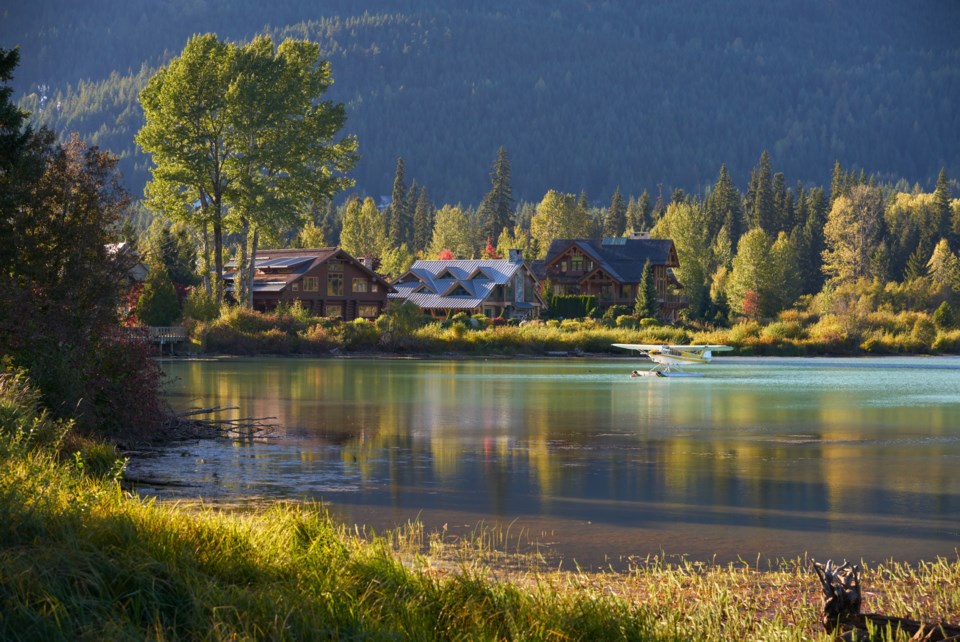As British Columbia’s recreational property market braces for modest price increases in 2025, Whistler continues to chart its own course—defined by complex market segmentation, low inventory, and cautious buyer behaviour.
Royal LePage’s Spring Recreational Property Report, released March 26, forecasts a two-per-cent increase in the median price of a single-family recreational home in B.C. this year, rising to $951,762. But local realtors say that figure doesn’t reflect Whistler’s on-the-ground reality.
“Royal LePage doesn’t have an office here and doesn’t have access to our [Whistler Listing System] data,” said Stefanie Hostetter, CEO of REMAX Sea to Sky Real Estate. “Whistler’s market is segmented in ways that don’t show up in provincial averages.”
Hostetter was one of two leading local realtors Pique spoke with to compare national and provincial trends with Whistler’s current conditions. According to Hostetter, Whistler’s real estate is best understood not as a single market but as three distinct ones: full-time residential, recreational investment properties, and hybrid-use homes.
“Our single-family homes are in a buyer’s market right now,” said Hostetter. “But our hotel condos and shared ownership units—like Phase 2 properties—have been in a seller’s market for the past year. Those aren’t mortgageable, so they’re less impacted by interest rates.”
The Bank of Canada has cut rates seven times since mid-2024, totalling a 225-basis-point drop. While that has increased affordability in some sectors, the impact in Whistler remains uneven.
“We’re still expecting rates to come down further, which could help,” Hostetter said. “But in Whistler, sellers of second homes often don’t need to sell, so they’re not likely to lower their prices quickly.”
Inventory slowly rising, but still tight
According to her Whistler Listing System data, Whistler had 319 active listings in early April, up slightly from previous months but still below historical norms. “A balanced market here is closer to 500 listings,” said Hostetter. “Right now, buyers have a bit more choice, but not much.”
By comparison, David Brown, a personal real estate corporation holder with Whistler Real Estate Co., said that while listings are up, they’re still far short of the 700 to 800 listings seen in 2010 and 2011.
“For buyers, it’s a better time than last year,” Brown said. “There’s more product, and interest rates for five-year mortgages are now below four per cent. But sellers still need to be realistic on pricing—especially for chalets and single-family homes.”
Sales sluggish in higher-end sectors
Hostetter said February’s sales data showed single-family homes averaging 239 days on the market, while Phase 2 hotel condos moved in just 22 days. “Shared ownership units and timeshares are also moving quickly—some in under a week,” she said.
While Royal LePage’s national report said the average days on market rose in 55 per cent of surveyed recreational markets, Whistler’s numbers continue to vary sharply depending on the property type.
Brown added Whistler’s market is not easily influenced by broader economic signals. “Sellers are patient,” he said. “They’re not forced sellers. If there’s volatility or tariffs coming from the U.S., they’ll just wait.”
Impact of regulation and taxation
Whistler is exempt from B.C.’s speculation and vacancy tax, but Brown warned the federal underused housing tax is dampening interest from American buyers—who historically made up eight to 10 per cent of the market, down from a peak of 16 per cent in 2003.
“These properties weren’t designed for full-time use,” he said of hotel condos and timeshares. “Applying this tax to nightly rental units is hurting the local economy and removing inventory that tourists rely on.”
Both Hostetter and Brown said short-term rental regulations haven’t had a major impact in Whistler, where nightly rental zoning is well established. However, Hostetter said understanding usage restrictions is increasingly important for buyers.
“The market is complicated now,” she said. “Between zoning, usage rules, and taxes, you really need to talk to someone local who understands it.”
Outlook: cautious optimism for summer
Despite economic uncertainty, both realtors remain optimistic about summer activity. Hostetter said Tourism Whistler is reporting strong conference bookings, which may drive interest in longer-stay vacation properties.
“If tariffs and political tension settle down, and rates keep falling, we could see a stronger fall market,” Brown said.
Hostetter agreed, but offered cautious advice to would-be buyers: “You don’t need to buy now, but it’s worth getting informed now," she said. "Talk to someone, learn the segments, and be ready to move when the time is right.”
Whistler’s average sale price across all property types in Q1 2025 was just under $1.7 million. In December, that figure dropped to $1.35 million as sales skewed toward shared ownership and timeshare properties. But as of March, luxury sales had pushed the median back up to roughly $1.75 million, according to Hostetter.
“The market here never moves in one direction,” she said. “It’s three markets moving at once.”




